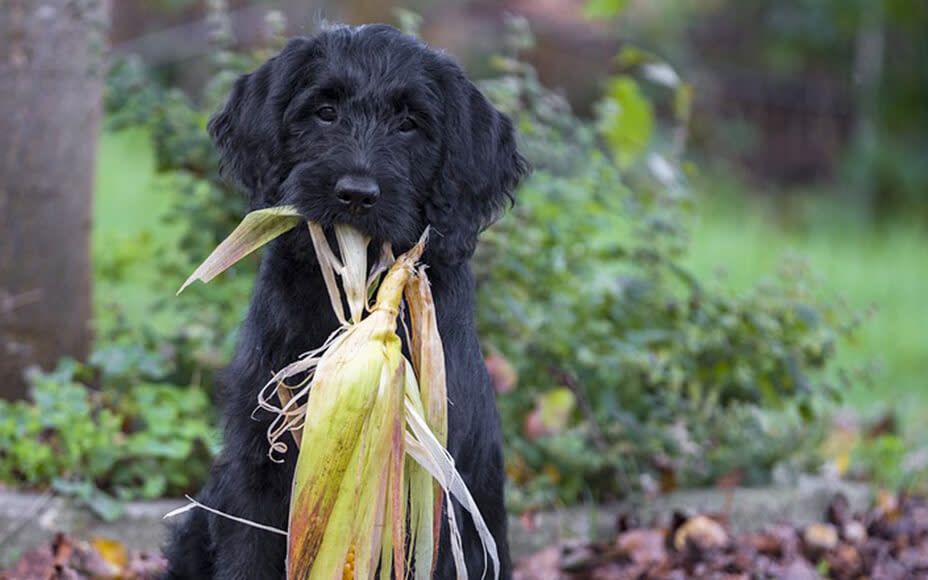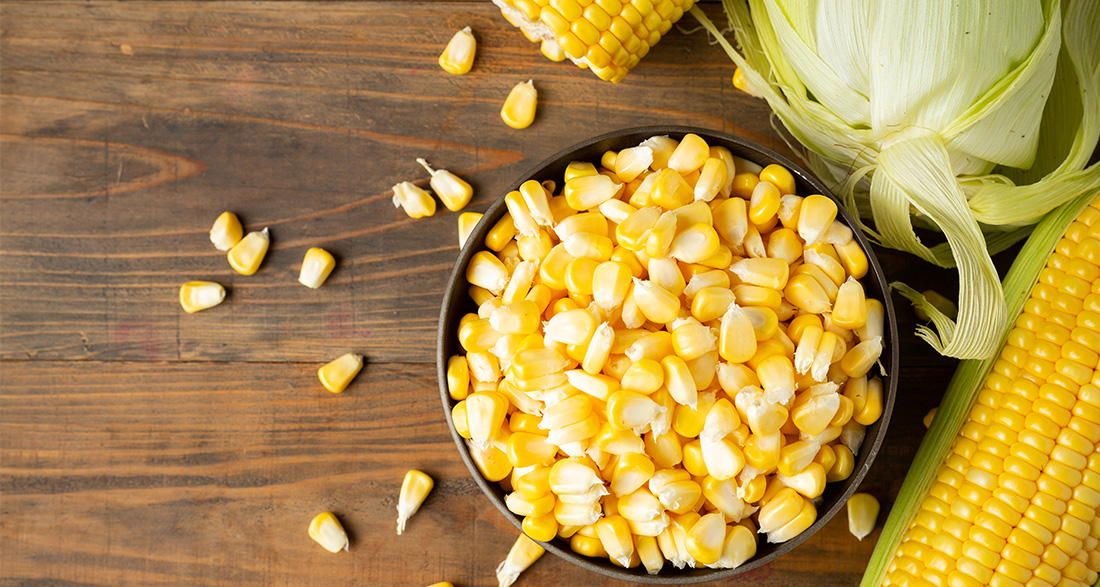You want to feed corn to your dog and wonder if it’s allowed for dogs? Learn why corn is healthy for dogs and how to feed it to your dog.
Can I Feed Corn to My Dog?
Is it allowed to feed dogs corn? The answer is: Yes, your dog can definitely eat corn. The nutritional myth that dogs are pure carnivores and dislike vegetables has been scientifically debunked, and vegetables find their place not only in the vegan and vegetarian diets of dogs. The yellow super grain has a lot to offer and numerous benefits for health. Find out why corn is so healthy for your dog and how you can easily integrate it into your four-legged friend’s diet.
Why is Corn so Healthy for Dogs?
Corn can work wonders in the bowl. Numerous vitamins, trace elements, and minerals are found in the plant belonging to the grass family, such as:
- Potassium for nerve conduction
- Magnesium for the function of muscles, nerves, heart, bone structure, and blood pressure control
- Calcium for hormone regulation, bone stability, and dental health
- Zinc for wound healing, cell growth, and the immune system
- Vitamin A for healthy cell growth and vision
- B-vitamins for the formation of red blood cells, energy metabolism, and cell division
- Vitamin E as protection against free radicals and skin cells
- Essential amino acids, which the body cannot produce itself, for healthy metabolic processes
- Fiber for a healthy bowel movement and digestion
Are you a fan of fresh meals with crunchy vegetables? But always find the idea of BARFing too complicated? Weighing was a thing of the past, with our fresh menus you’ll easily become a pro!
Can Dogs Eat Fresh Corn on the Cob?
You should always avoid your dog eating the hard kernels from fresh corn on the cob – there is a risk of injury to the teeth, swallowing, and digestive problems can occur. In addition, uncooked, fresh corn kernels are digested with the shell – none of the valuable nutrients reach the body.

If you happen to have field corn in your garden or behind your house, you should refrain from it. By spraying the plants with pesticides, the corn is more harmful than beneficial for your dog. So, make sure your dog doesn’t just grab an ear of corn while walking! The core in the middle of the cob can cause injury to the intestine when swallowed and even trigger intestinal obstruction and perforation.
So, opt for a healthy, species-appropriate chew before reaching for the whole corn on the cob. Our Pets Deli chews are free from grains, sugar, and artificial additives. Long-lasting chewing pleasure guaranteed!
How Should I Feed Corn to My Dog?
So that corn is particularly pleasant for your dog when feeding, canned corn or corn flakes are suitable.
You can either let corn flakes swell or drain canned corn and puree it. This makes the nutrients accessible to your dog. Only those who chew properly get to the vitamin miracle hidden under the skin. If quadrupeds swallow the individual grains, it is not only difficult to digest but also a shame for the concentrated vitamin power. Keep in mind that spices have no place in your dog’s bowl. Even if you like your corn well salted – your dog prefers it natural!
Whether BARF, wet or dry food: finely swelled or pureed, you can mix the corn under your furry friend’s food. This way, you easily create a delicious topping and provide a special variety in the bowl. If you regularly feed corn, it is recommended to adjust the feeding ration according to the feeding recommendations. In addition to nutrients, corn also provides carbohydrates, which can lead to overweight if fed regularly beyond daily needs. If your four-legged friend has a bit more “hip gold,” refine the food occasionally with some tasty, low-calorie sweet potato or broccoli.


